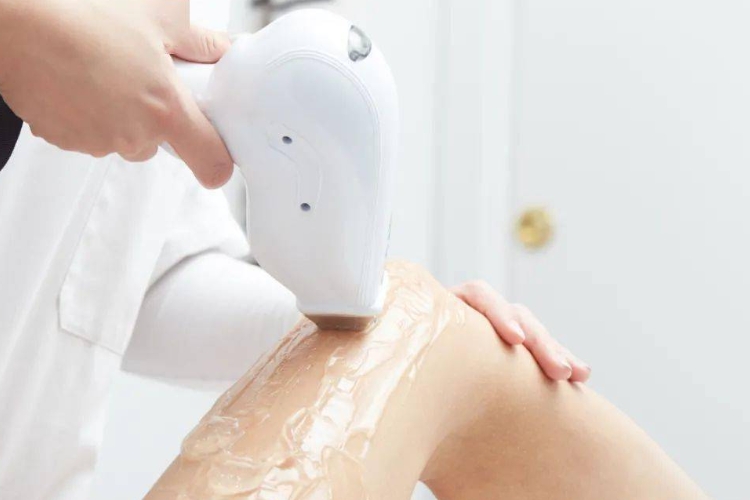
If you're a woman dealing with hirsutism or a man experiencing hypertrichosis, it's likely that you've contemplated the idea of laser hair removal at least once. This procedure appeals not just to individuals with medical concerns, but also to anyone tired of the continuous cycle of shaving, waxing, and using depilatory creams.
This widespread interest is precisely what has propelled laser hair removal to prominence over the years. Yet, the considerable expense associated with this seemingly miraculous treatment often leads to serious contemplation, doesn’t it? With that in mind, our aim is to offer a comprehensive guide on laser hair removal from the ground up.
Table of Contents:
Part 1: Understanding Laser Hair Removal
How Does Laser Hair Removal Function?
Laser hair removalselective thermolysis
In the latter technique, the emitted light energy travels between hair follicles beneath the skin's surface, resulting in follicle damage. Consequently, lasers present a non-invasive option for achieving long-lasting hair removal.
Before and After Laser Hair Removal Treatments:
The process of laser hair removal kicks off when a qualified laser technician assesses your eligibility for the treatment. Historically, individuals with dark hair and light skin tones were deemed ideal candidates for laser procedures. However, recent advancements in technology now accommodate those with lighter hair colors and darker skin tones as well.
Moreover, it's essential to understand that laser hair removal is not a one-off treatment. Typically, it requires a series of 6 to 12 sessions, since the laser is most effective when it targets hair in the anagen (growth) phase. Sessions are generally spaced 4 to 6 weeks apart, and noticeable results can be seen after 4 to 6 sessions.
A study involving 59 women of Indian descent demonstrated progressive improvements in hair reduction with each subsequent session, revealing a 23-33% reduction after the first session, 58-62% after three sessions, and an impressive 50-100% reduction after seven sessions.
Additionally, it's crucial to follow proper aftercare post-treatment to enhance the safety and efficacy of laser hair removal.
Comparing Laser Hair Removal with Electrolysis and IPL Hair Removal:
Laser hair removallaser treatments
On the other hand, electrolysis is the only FDA-approved method that offers permanent hair removal. This time-intensive technique involves inserting a fine needle into the skin to deliver an electric current that obliterates hair follicles, preventing future hair growth. While it is enduring, electrolysis can be quite painful.
IPL (Intense Pulsed Light) hair removal is generally viewed as the most practical, less painful, and more budget-friendly method for semi-permanent hair removal. Utilizing a broader spectrum of light, IPL operates similarly to lasers, although it lacks the precision and longevity of laser treatments.
When comparing electrolysis to laser hair removal, the latter is often regarded as the more pragmatic choice.
Is Laser Hair Removal a Long-lasting Solution?
Unfortunately, laser hair removal does not guarantee permanence. While it can be effective for several months to a few years, unwanted hair often reappears as it can regenerate. An article discussing the effectiveness of laser hair removal suggests that periodic maintenance sessions are necessary to sustain hairlessness even after the initial treatments are completed.
Part 2: Advantages and Disadvantages of Laser Hair Removal
Benefits of Laser Hair Removal:
Here are some key advantages of opting for in-salon laser hair removal:
Safety and Risks Associated with Laser Hair Removal:
When considering laser hair removal, it’s entirely natural to have concerns regarding its safety due to the potential for harm. However, laser treatments are considered safe and typically present only a few reversible side effects, provided you choose a qualified professional and a reputable clinic.
The most common side effects associated with laser treatments include:
Can Laser Hair Removal Induce Cancer? Is It Safe?
No, laser hair removal does not cause cancer. However, individuals with active cancer or a personal history of malignancy might want to avoid this treatment. For those with healthy skin, laser treatments pose no risk since the UV rays used in lasers operate at wavelengths that are not associated with cancer-causing properties. Furthermore, research aimed at examining the carcinogenic potential of IPL and laser systems has concluded that these treatments do not induce cancer.
Does Laser Hair Removal Hurt?
Most clinics claim that laser sessions are virtually painless or only cause mild discomfort, but this assertion is largely subjective. Pain intensity can vary significantly from person to person, with some describing it as akin to a rubber band snapping against the skin while others compare it to a bee sting. To mitigate discomfort, consider taking pain relievers about 30 minutes prior to your session.
Is Laser Hair Removal Safe During Pregnancy?
Data concerning the safety of laser hair removal during pregnancy is limited. While no conclusive studies have indicated harm to either the mother or baby, the lack of comprehensive research suggests that it might be wiser to avoid laser treatments during this period.
Part 3: The Financial Aspect of Laser Hair Removal







































